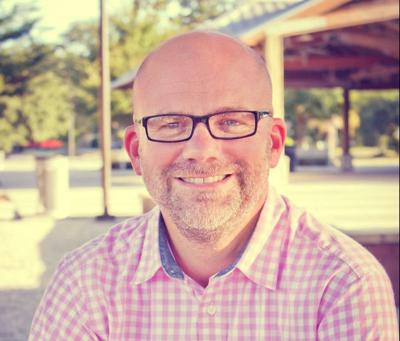Q: My kids, who are at three different schools, all follow a program called “Capturing Kids’ Hearts.” They are always mocking the program, so I’m curious what it is and if it’s effective.
Created by a Texas psychotherapist called Flip Flippen, Capturing Kids’ Hearts (CKH) is a classroom management system whose philosophy is “if you have a child’s heart, you have his mind.”
The program has good intentions. The idea is that if you have a warm, positive relationship with your teacher, you’ll learn a lot and stay out of trouble. CKH promotes those relationships by having students formulate their own classroom behavior norms in a “social contract.” Instead of teachers enforcing traditional discipline, it encourages kids to “call fouls” and “check” one another’s conduct. It mandates that teachers greet each student every day with a handshake and that students give each other written and verbal “affirmations.”
Before CKH, Flippen’s claim to fame was having raised 20 children (which qualifies him for both sainthood and his own show on TLC). He is not without controversy. According to the Daily Republic, he was paid $10,000 by a Mississippi school district for delivering a single speech. In another district, his group allegedly charged $300 per hour for follow-up phone consultations.
Those charges are independent of the base fees for the two-day CKH training, which run about $600 per teacher. Even in the posh realm of the educational marketplace, those fees are exorbitant. Is it worth it?
There are a number of supporters in the teaching ranks. Part of this is a result of the training, which is a blend of feel-good team-building exercises (at my training we sang “Lean on Me” in unison), and Tony Robbins-style affirmations that leave many participants in tears. The tears lead to catharsis, which can be personally empowering. But catharsis is not an educational strategy, and this is why many people balk at CKH’s price tag.
Despite promoting the capturing of kids’ “hearts,” an awful lot of the training is spent on brain research. This lends credence to those who suspect that CKH’s success, such that it is, isn’t so much about heartfelt compassion as it is mental manipulation. Push the right buttons, release the endorphins, and kids are putty in your hands. Well, all except those who are smart enough to see through the manipulation (or too apathetic to care).
Districts always think that if 1 fur coat is good, then 500 must be truly wonderful. CKH is a rigid system that Flippen insists must be implemented with “absolute fidelity” or it won’t work. In fact, that fidelity is what will shipwreck it. When every teacher for all 12 years of a student’s schooling is employing its tricks, kids will perceive that the “compassion” it manufactures is totally inauthentic. At that point, it is functionally dead. It sounds like your children, who you say mock the program, are nearing such an end.
Where CKH badly breaks down is in its management of the most disruptive behaviors. Its solution is to stop everything and ask the disobedient student four frivolous questions: “What are you doing? What are you supposed to be doing? Are you doing it? What are you going to do about it?”) that no disruptive student would ever seriously answer and no real-world adult would ever seriously ask. Thus CKH’s response to bad behavior is to commence a negotiation. This tactic, as experienced parents know, only serves to prolong the pain and erode the child’s respect for authority. It also prepares students for a world that doesn’t really exist because in a real job the egregious offender would simply be punished or fired.
Research offers little support for CKH’s fundamental purpose. The reality is that whether or not students have a genial relationship with their teacher does not substantially affect their learning. According to an extensive study by the Center for College and Career Readiness on the “effect size” (a term that measures the degree of impact) on learning, it was “Teacher Expectations of Students” (1.62) and “Teacher Self-Confidence” (1.57) that blew away every other significant effect on student achievement. “Teacher Relationship” (.90) was well down the list, below “Small Group Interventions” (1.07).
In other words, a confident teacher who believes her students are capable of learning and holds them accountable for high standards will have a far greater impact on her student’s success than a teacher who just has a kindly relationship with them. Despite this, teachers are still coached to water down their expectations so that students can more easily pass. Meanwhile, millions of dollars are spent on indoctrinating teachers into the simple art of treating students with respect and celebrating their successes, traits that come naturally to most people, let alone teachers, few of whom I suspect got into the profession to dehumanize unlearned children.
The bottom line for schools is that programs don’t capture hearts. Teachers do. For teachers who are having a hard time connecting to their students, CKH might help them find something in themselves that’s missing. Teachers who don’t have a problem with that will probably find the program ridiculously restrictive and will see right through its tricks of persuasion. Widespread use of CKH will eventually render it powerless.
Some might even wonder if the $600 per teacher would be better spent by simply paying them cash money to be more compassionate. I wonder that myself.
Jody Stallings has been an award-winning teacher in Charleston since 1992. He has served as Charleston County Teacher of the Year, Walmart Teacher of the Year, and CEA runner-up for National Educator of the Year. He currently teaches English at Moultrie Middle School and is director of the Charleston Teacher Alliance.To submit a question or receive notification when new columns are posted, please email him at JodyLStallings@gmail.com. For easy sharing and notifications, follow Teacher to Parent on Facebook: facebook.com/teachertoparent.



